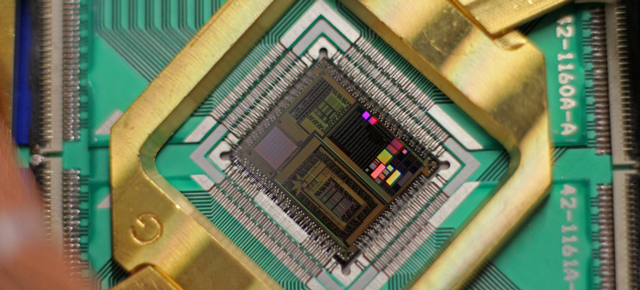The D-Wave 2 is a much-hyped quantum computer, but, as scientists now report, it’s not actually any faster than a regular old PC. Wait, didn’t we say it was 3600 times faster just a few months ago? Yes, and both are right. Whether one computer is faster than another is actually a mighty complicated question.
Quantum computers can, theoretically, be faster because they take advantage of a quirk in quantum mechanics. While classical computers use bits in 0 or 1, quantum computers use “qubits” that can exist in 0, 1 or a superposition of 2, which allows it to work through possible solutions more quickly.
The D-Wave 2 is the second commercially available quantum computer — “commercially available” if you have something like $US15 million lying around. Lockheed Martin bought one that is now housed at the University of Southern California, where the current study was performed, for example, and Google bought one too.
So why are there different numbers flying around about the speed of the D-Wave 2? Well, it depends on how you test it. D-Wave 2 was 3600 times faster when it was solving a problem it was specifically designed to solve. To make a crude analogy, it’s like comparing hammers and screwdrivers when you’re trying to hammer a nail. But in a study published today in Science, a matchup ran optimised algorithms on the PC, ensuring a more even playing ground. The computer scientists found no evidence of “quantum speedup.”
But that doesn’t mean quantum computing is a dead end. New Scientist aptly explains why this particular test may be underestimating D-Wave’s abilities:
D-Wave computers solve problems in a process similar to exploring a hilly landscape where the lowest points corresponds to the best solution. While an ordinary computer is forced to climb up and over the hills to find the low points, a quantum machine can simply tunnel its way through.
The trouble is that many test problems aren’t challenging enough, leading some to suggest that the reason D-Wave didn’t show a quantum speed-up in some tests…isn’t because it is not able to deliver a better performance, but rather because the test didn’t force it too.
There’s something humbling about the fact that we’ve created a computer whose abilities we don’t really even how to test yet. [Science via Wired, New Scientist]
Picture: D-Wave
